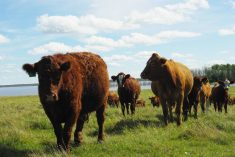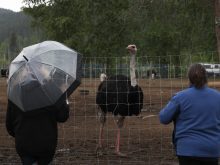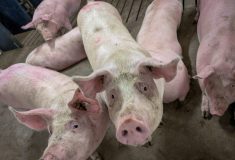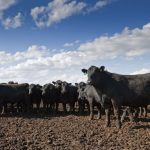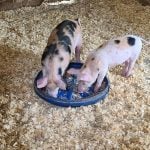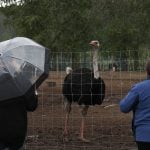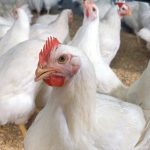The National Farmers Union (NFU) wants Ontario provincial ombudsman Andre Marin to investigate the conduct and goals of the provincial ministry of agriculture, food and rural affairs.
The Saskatoon-based farmers’ group submitted a report to Marin’s office Wednesday, detailing what the NFU calls “numerous instances where OMAFRA is failing to protect the long-term interests of Ontario’s citizens” by steering provincial farm policy toward exports and farm expansion.
The NFU claims in its brief to the ombudsman that OMAFRA has failed to pursue and preserve policies that strengthen rural communities and economies, food safety and healthfulness, sustainable production and family farms.
Read Also

U.S. criticizes Mexico’s handling of screwworm near border
U.S. Agriculture Secretary Brooke Rollins on Thursday said Mexico has not adequately enacted protocols to curb the spread of New World screwworm.
“Led astray by a too-close relationship with agri-business and in search of short-term political goals, the ministry is mismanaging both our food system and our rural economy, leaving them weak and vulnerable,” the group wrote.
The NFU cites the negative net incomes of Ontario farmers over the past five years and seeks to connect the decline in net income with the increase in agri-food exports from the province.
“In the 1970s and early ’80s, ramping up exports looked like a winning strategy,” the group wrote, and perhaps the province couldn’t be faulted for its early work in paving the way for those exports.
“But OMAFRA should be blamed for continuing to push export-maximization policies even as decades of data piled up showing that farmers are hurt, not helped, by those policies,” the NFU added, contending that the department should have realized and admitted by the early 1990s that the policy favouring exports wasn’t helping farm families.
Furthermore, the NFU said, the province “also instructed farmers to increase the efficiency of their operations, to get bigger,” what some call the “get big or get out” approach.
The NFU quoted a 2000 OMAFRA discussion paper on intensive agriculture operations in rural Ontario as an example of OMAFRA’s policy position. “To remain competitive, farmers must evolve and adopt new, more efficient production methods,” the discussion paper noted. “As farmers strive to compete in a global marketplace, they continually look for new efficiencies, whether in the form of economies of scale, new technology or vertically integrated operations.”
It’s not that OMAFRA is trying to meet expectations and failing against “overwhelming forces arrayed against its success,” the group said, but that the department “is guided by another set of goals and expectations altogether.”
The NFU brief goes out of its way to assure OMAFRA front-line staff that their professionalism and “commitment to positive outcomes” is not in question and the fault is instead in the department’s “senior leadership and direction.”
The province’s ombudsman is an officer of the provincial legislature and reports to that body, but is considered independent of both the government and political parties. Marin’s job to provide oversight and ensure accountability for administration of government services.



